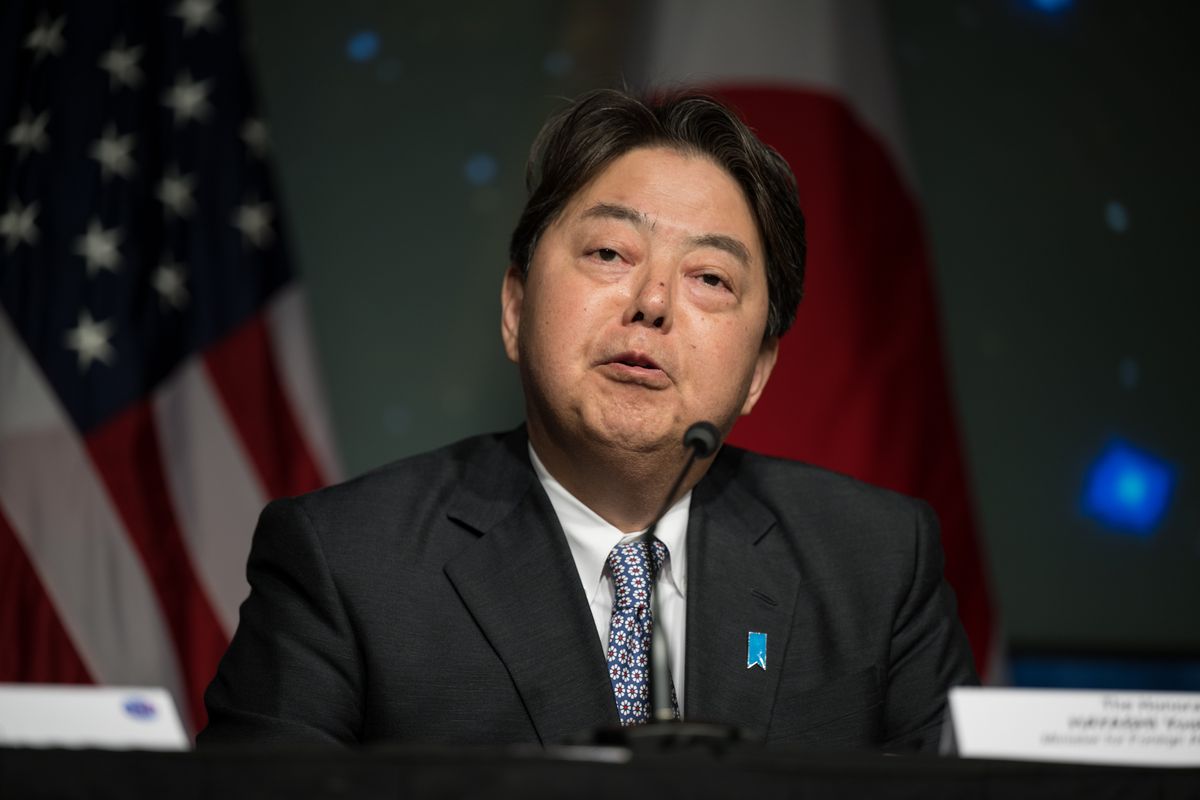China Tensions Remain Top Focus as G7 Diplomats Meet

The Lede: Officials called for unity at the G7 foreign ministers' summit, amid raising challenges in Indo-Pacific, as China has completed another large-scale military drill around Taiwan.
What we know:
- The Japanese Foreign Ministry said in a statement that the highest-ranking diplomats confirmed their stance by reaching an agreement on Sunday evening, pledging to oppose any attempts by a single entity to change the status quo through force, while also emphasizing that "peace and stability" in the Taiwan Strait are crucial components for global security.
- The ministers called on China “to act as a responsible member of the international community.” Meanwhile, the summit's host, Japanese Foreign Minister Yoshimasa Hayashi, took a more diplomatic approach by highlighting the need to work together with China on areas of common interest and global issues, aimed at building stable and constructive relationships, according to the Japan Times.
- Tensions between the U.S. and China have further escalated after Taiwanese President Tsai Ing-wen's historic meeting with U.S. House Speaker Kevin McCarthy in California earlier in April. Beijing recently concluded a three-day extensive military exercise around Taiwan, which consisted of simulated air and sea blockades, as well as strikes on the island by warplanes. Meanwhile, the U.S. Navy dispatched a warship through the Taiwan Strait on Monday, April 17, for a "routine" transit, with China's military stating that it is keeping a close eye on the vessel.
- The G7 consists of Japan, Britain, Canada, France, Germany, Italy, the United States, and the European Union. As the only Asian member and this year’s host, Japan aims to utilize the foreign ministers' summit to set the stage for the G7 leaders' gathering in Hiroshima in the following month. The current summit is expected to culminate with a joint statement on Tuesday, April 18.
The background: The G7 meeting comes days after French President Emmanuel Macron visited China and met with President Xi Jinping. Macron's top priority was Ukraine, as he hopes Xi Jinping would help “bring Russia to its senses.” The French President also focused on resuming trade relations with China, since Beijing has eased stringent COVID-19 restrictions. After the trip, Macron made controversial remarks on Taiwan, saying that “being an ally does not mean being a vassal,” and that European countries don’t have to get “caught up in crises” that are not their own or become “just America’s followers.” While Biden administration tried to play down his comments by reassuring the public of strong ties between the U.S. and France, Macron faced backlash from both, U.S. and European officials. China, on the other hand, praised the French president, stating it was surprised by the criticism. According to European diplomats and officials, Macron's opinions do not represent Europe as a whole as the 27 EU member states have agreed on a plan of action regarding China. But they are aware that Macron's remarks, and his attempts to position himself as the leader of the EU, could lead to genuine problems with the U.S. for Europe, CNN reported.
Likely outcomes/Takeaway:
- Macron’s earlier remarks are expected to have an impact on the final statement that G7 leaders are set to issue on Tuesday, April 18. Specifically, it will lead to a more careful examination of the language used in the final statement regarding China and its intentions to take control of Taiwan. The statement might clarify the shared position of G7 nations, including European member states, to alleviate concerns about potential divisions within the group and signal strong transatlantic ties.
- Considering Japanese Foreign Minister Yoshimasa Hayashi’s earlier remarks, G7, or at least some of its members, may seek to balance the approach towards China, addressing security concerns while fostering collaboration on areas of shared interest and economic growth. It means that diplomatic engagement and trade are also likely issues to come up in Tuesday’s statement.
- Although Europe's stance on China and Taiwan has shifted closer to that of the U.S., there is still a lack of agreement and Macron’s remarks serve as an example. Washington has adopted a more pessimistic outlook on China, and there has been a rise in signals of support for Taiwan, which may have led to a disparity between the U.S. and some of European nations.
Quotables:
- “The question Europeans need to answer … is it in our interest to accelerate [a crisis] on Taiwan? No. The worse thing would be to think that we Europeans must become followers on this topic and take our cue from the U.S. agenda and a Chinese overreaction.” – French President Emmanuel Macron.
- "Some countries do not want to see other nations become independent and self-reliant, and instead always want to coerce other countries into obeying their will." – Chinese Foreign Ministry spokesperson Wang Wenbin said.
- "We must not limit ourselves to defending the European peace." – German Foreign Minister Annalena Baerbock.
Good Reads:
China tensions top agenda as G7 diplomats meet in Japan (The Japan Times)
Macron on Taiwan: 'An ally not a vassal', says France leader (BBC)
Analysis: ‘Tone deaf’ Macron faces backlash over Taiwan comments (CNN)
